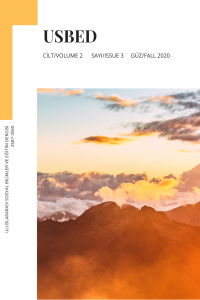Interrelation Between the Universal Suffrage and its Restrictions
Abstract
The article presents a discussion on the notion of universal suffrage, restrictions settled by states, the different approaches to limitations, and the importance of universal suffrage as one of the main measurements of democratic elections. Presented study focuses on the analyses of the theory, regulations, and judicial practice regarding main restrictions such as citizenship, residency, and age. This article reviews in detail existing regulations worldwide study the approach of different states concerning limitations of universal suffrage, discusses judicial practice both of states and international organizations, on the bases of comparative analysis identifies main problems and challenges, shows the interrelation of universal suffrage with the principles of inclusiveness, draws own conclusions and makes recommendations for rising the effectiveness of the principle of universal suffrage.
References
- Human Rights Committee (2015). Concluding Observations on the third annual report of Uzbekistan on ICCPR. Retrieved from https://bit.ly/2UjnenE
- Merloe P., (2008) Human rights - the basis for inclusiveness, transparency, accountability and public confidence in elections”, International Principles for Democratic Elections (edit. John Harding), American Bar Association, Washington D.C.
- White I., (2015).Voting Age (Briefing Paper). House of Commons, UK. Retrieved from https://bit.ly/30eaoLi
Interrelation Between the Universal Suffrage and its Restrictions
Abstract
The article presents a discussion on the notion of universal suffrage, restrictions settled by states, the different approaches to limitations, and the importance of universal suffrage as one of the main measurements of democratic elections. Presented study focuses on the analyses of the theory, regulations, and judicial practice regarding main restrictions such as citizenship, residency, and age. This article reviews in detail existing regulations worldwide study the approach of different states concerning limitations of universal suffrage, discusses judicial practice both of states and international organizations, on the bases of comparative analysis identifies main problems and challenges, shows the interrelation of universal suffrage with the principles of inclusiveness, draws own conclusions and makes recommendations for rising the effectiveness of the principle of universal suffrage.
References
- Human Rights Committee (2015). Concluding Observations on the third annual report of Uzbekistan on ICCPR. Retrieved from https://bit.ly/2UjnenE
- Merloe P., (2008) Human rights - the basis for inclusiveness, transparency, accountability and public confidence in elections”, International Principles for Democratic Elections (edit. John Harding), American Bar Association, Washington D.C.
- White I., (2015).Voting Age (Briefing Paper). House of Commons, UK. Retrieved from https://bit.ly/30eaoLi
Details
| Primary Language | English |
|---|---|
| Subjects | Law in Context |
| Journal Section | Research Articles |
| Authors | |
| Publication Date | October 23, 2020 |
| Submission Date | June 8, 2020 |
| Acceptance Date | August 31, 2020 |
| Published in Issue | Year 2020 Volume: 2 Issue: 3 |
Editor in Chief: Prof. Dr. Aytekin DEMİRCİOĞLU

